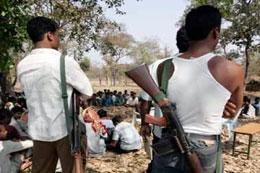New India travel advisory warns of terrorism, conflict

The Government of Canada, in a new advisory this month, is warning that all travel should be avoided in a number of Indian cities, while in other areas in the country only ‘essential’ travel is recommended.
The updated advice comes due to terrorist activity and violent demonstrations in the northern Indian state of Jammu and Kashmir.
Every year, more than 300,000 Canadians head to India.
Indian-administered Kashmir has been declared unsafe by the Government of Canada after the Indian government stripped the region of its special constitutional status.
Since then, the region has been on lockdown, with phone networks and internet cut off and unavailable. There are tens of thousands of troops present on the streets, and according to the travel advisory, there is a real threat of violent demonstrations in the area.
The advisory warns, “there are risks of civil disorder and acts of terrorism in many districts of Jammu and Kashmir, and the Indian army has special powers in this state. The security threat level remains high.”
The statement from the Government of Canada continues, “Civilians have been killed or injured during such attacks. You could find yourself in the wrong place at the wrong time.”
According to the government website, if an avoid all travel warning has been issued, there is an 'extreme risk' to your personal safety and security. The advisory explains that nobody should travel inside the zones mentioned and notes, "if you are already in the country, territory or region, you should consider leaving if it is safe to do so."
The advisory does not warn against all travel to India, but does recommend using a high degree of caution across the country, “due to a continuing threat of terrorist attacks throughout the country at all times.”
Other areas in India that are deemed unsafe and listed as “avoid all travel” by the Canadian government include Arunachal Pradesh, Assam, Manipur, Meghalaya, Mizoram and Nagaland bordering Bangladesh and Myanmar, due to significant conflict there.
The recommendation also says to avoid all travel to areas within 10 kilometres of the Indian-Pakistan border in Gujarat, Punjab and Rajasthan, due to the possibility of landmines and unexploded weapons.
Jammu and Kashmir
On August 5, 2019, the Government of India announced constitutional changes that will affect the internal political status of Jammu and Kashmir. Security forces have increased their presence. Internet and telecommunications services have been temporarily suspended in several areas. Movement restrictions may be put in place without notice. Monitor local news and follow the instructions of local authorities.
There are risks of civil disorder and acts of terrorism in many districts of Jammu and Kashmir, and the Indian army has special powers in this state. The security threat level remains high.
There are sporadic violent clashes between militants and Indian security forces. There are also occasional terrorist attacks against Indian security forces, in the Kashmir valley and Jammu region of the state. Civilians have been killed or injured during such attacks. You could find yourself in the wrong place at the wrong time.
Border with Pakistan
A strong military presence remains on both sides of the Line of Control (the military control line between India and Pakistan). Unmarked border areas, landmines and unexploded munitions constitute a risk. Cross-border gunfire and shelling occur sporadically along the LoC.
Insurgency
Maoist extremist groups, known as Naxalites, are most active in areas identified by the Government of India as left-wing extremist states, which include: Andhra Pradesh, Bihar, Chhattisgarh, Jharkhand, Madhya Pradesh, Maharashtra, Odisha, Telangana, Uttar Pradesh and West Bengal.
Naxalites, who are responsible for the majority of terrorist attacks in India are usually based in rural and forested areas within the left-wing extremist affected states. There are frequent bombings and attacks by extremist groups in the northeastern state of Manipur. The Manipur-Mayanmar, Assam-Bangladesh, Nagaland-Myanmar and Arunachal Pradesh-Myanmar border areas are also affected by insurgency.
Extremist groups almost always target government and security forces, and sometimes, trains and railway tracks. While tourists have not been specifically targeted, bystanders can be affected. Since 2012, Naxalites have kidnapped 3 foreigners when they entered into areas controlled by them.









